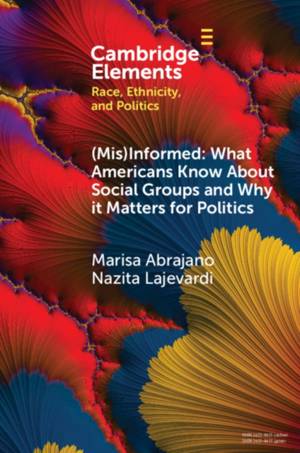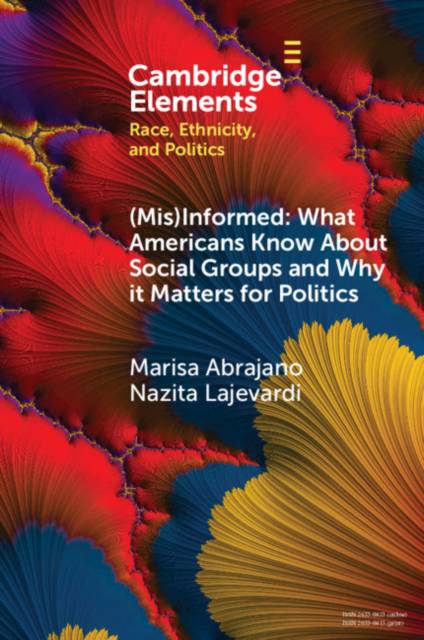
Bedankt voor het vertrouwen het afgelopen jaar! Om jou te bedanken bieden we GRATIS verzending (in België) aan op alles gedurende de hele maand januari.
- Afhalen na 1 uur in een winkel met voorraad
- In januari gratis thuislevering in België
- Ruim aanbod met 7 miljoen producten
Bedankt voor het vertrouwen het afgelopen jaar! Om jou te bedanken bieden we GRATIS verzending (in België) aan op alles gedurende de hele maand januari.
- Afhalen na 1 uur in een winkel met voorraad
- In januari gratis thuislevering in België
- Ruim aanbod met 7 miljoen producten
Zoeken
(Mis)Informed
What Americans Know About Social Groups and Why it Matters for Politics
Marisa Abrajano
€ 33,45
+ 66 punten
Omschrijving
This Element examines just how much the public knows about some of America's most stigmatized social groups, who comprise 40.3% of the population, and evaluates whether misinformation matters for shaping policy attitudes and candidate support. The authors design and field an original survey containing large national samples of Black, Latino, Asian, Muslim, and White Americans, and include measures of misinformation designed to assess the amount of factual information that individuals possess about these groups. They find that Republicans, Whites, the most racially resentful, and consumers of conservative news outlets are the most likely to be misinformed about socially marginalized groups. Their analysis also indicates that misinformation predicts hostile policy support on racialized issues; it is also positively correlated with support for Trump. They then conducted three studies aimed at correcting misinformation. Their research speaks to the prospects of a well-functioning democracy, and its ramifications on the most marginalized.
Specificaties
Betrokkenen
- Auteur(s):
- Uitgeverij:
Inhoud
- Aantal bladzijden:
- 88
- Taal:
- Engels
- Reeks:
Eigenschappen
- Productcode (EAN):
- 9781108794817
- Verschijningsdatum:
- 24/06/2021
- Uitvoering:
- Paperback
- Formaat:
- Trade paperback (VS)
- Afmetingen:
- 152 mm x 229 mm
- Gewicht:
- 127 g

Alleen bij Standaard Boekhandel
+ 66 punten op je klantenkaart van Standaard Boekhandel
Beoordelingen
We publiceren alleen reviews die voldoen aan de voorwaarden voor reviews. Bekijk onze voorwaarden voor reviews.









